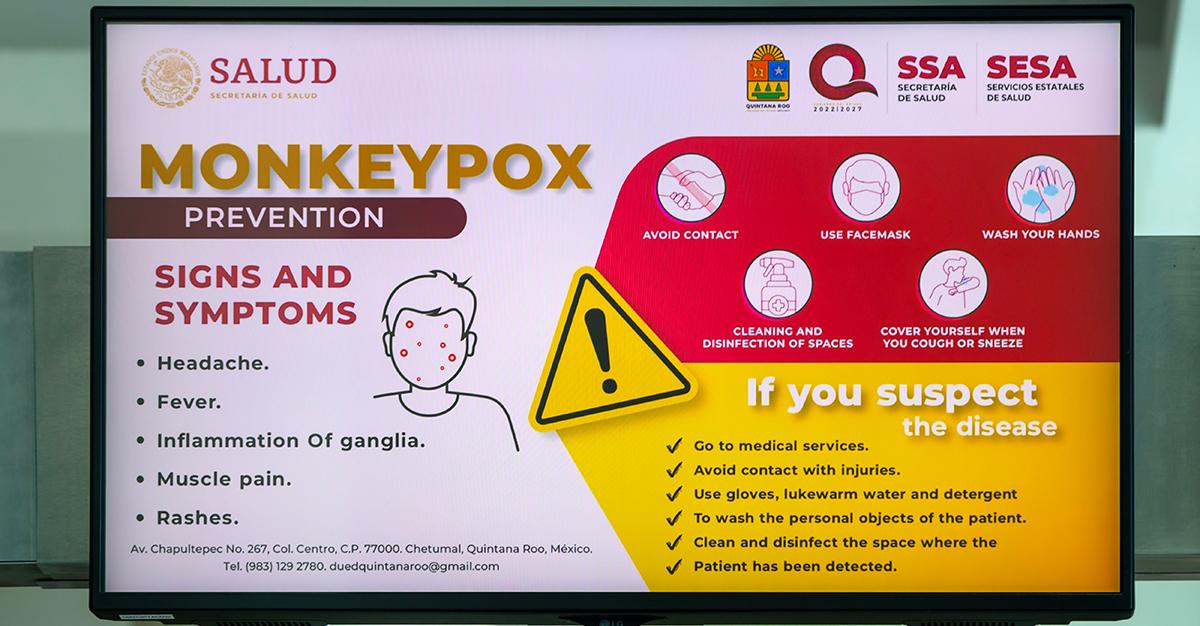Mpox Used to Be Called "Monkeypox," But Its Name Was Changed — Here's Why
A disease by any other name is just as serious.
Published Aug. 15 2024, 2:56 p.m. ET

Let's face it. Those of us in the 2020s know this era largely for one thing and one thing only: diseases and fear of them. After the COVID-19 pandemic, more people have become hyper-aware of the dangers of infectious diseases. COVID vaccines are (or should be) the norm, masks have become security blankets for some, and the conversation around disease protection has shifted for better and for worse.
All in all, it's become more important than ever to keep abreast of how infectious diseases can impact our lives and what precautions we can take to keep ourselves and our loved ones safe.
To that end, the World Health Organization recently re-upped its declaration for mpox as a global health crisis in need of addressing. Many once knew the disease by its previous label: monkeypox. The name was changed as recently as 2022, but what prompted the new label? Here's what we know.

Why did they change the name of monkeypox? It was phased out due to its problematic origins.
Mpox is an infectious disease that causes rashes and swollen lymph nodes across the entire body. These external physical symptoms may also be accompanied by fever, exhaustion, muscle aches, and sore throats. While most infected patients recover from mpox within a few weeks, or sooner with proper medical treatment, it can cause more severe complications in those with weak, underdeveloped, or otherwise compromised immune systems.
Like any disease, it's one to address if it ever comes up. However, it was once known by its more popular name "monkeypox." According to the CDC, the disease was first discovered in 1958 among colonies of laboratory monkeys, giving rise to its original name. In the decades that followed, however, the original name was criticized for its racist connotations. Many believe that the name "monkeypox" reinforced stereotypes about African countries being a source of diseases.
Dr. Ifeanyi Nsofor, a global health equity advocate and senior New Voices fellow at the Aspen Institute, told NPR in 2022, "Monkeypox should be renamed for two major reasons. First, there is a long history of referring to Blacks as monkeys. Therefore, 'monkeypox' is racist and stigmatizes Blacks. Second, 'monkeypox' gives a wrong impression that the disease is only transmitted by monkeys. This is wrong,"
The name would only be changed in 2022 after the WHO developed new guidelines for naming illnesses without offending other cultures or demographics. To that end, "monkeypox" was simply shortened to "mpox" and has been in use among health officials ever since.
On Aug. 14, 2024, the WHO once again declared the spread of mpox a global health emergency after cases in the Democratic Republic of Congo had spread to previously unaffected countries in Africa.
In a perfect world already ravaged once by a pandemic, the term "global health emergency" would at least keep folks on alert and aware of how these diseases could affect themselves and their loved ones. However, disease safety has instead become a hot-button issue where folks think that not worrying about disease is an opinionated stance. The truth is, it doesn't matter what you call a disease or how you feel about it. Just wash your hands, wear masks when necessary, and be aware.